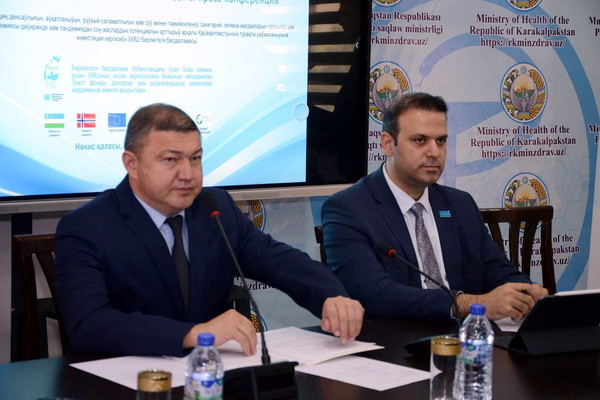
Iron and Folic Acid Supplementation Program for Adolescent Girls Launched in Karakalpakstan
Tashkent, Uzbekistan (UzDaily.com) -- UNICEF and the Ministry of Health of Uzbekistan launched Iron and Folic Acid Supplementation Program in the Republic of Karakalpakstan. The programme covers 131,938 adolescent girls aged 10-17 to improve their health and prevent anemia among this group of the population.
UNICEF has provided 50,000 packs of iron and folic acid medicines. It is expected that micronutrient supplementation will contribute to reducing iron and folic acid deficiency in the region, which is 40-50 per cent higher than the national average.
“The supplementation program will help to address the iron and folic acid deficiency amongst adolescent girls, thus positively affect their learning achievements, participation in school and community activities. It will have a long-term positive impact throughout their lives,” said Munir Mammadzade, UNICEF Representative in Uzbekistan.
These micronutrient supplements will be distributed to primary care health facilities around the Republic of Karakalpakstan, and adolescent girls will take these supplements under the observation of trained healthcare workers.
“Our continued partnership with UNICEF is pivotal in improving the health of mothers and children in Karakalpakstan. We significantly improved the mothers' and newborns' health in the region, and now we are investing in adolescent girls’ health to prevent micronutrient deficiency,” said Mr. Murad Kurbanov, Minister of Health of the Republic of Karakalpakstan.
This supplementation programme is a part of the UNICEF-led UN Joint Programme “Investing in a resilient future of Karakalpakstan by improving health, nutrition, water, sanitation, hygiene and wellbeing of adolescents and by harnessing the talents of youth during and after COVID- 19”.
The comprehensive and integrated programme addresses immediate needs through constructing sanitation facilities, improving access to safe water, hygiene and sanitation promotion activities, and micronutrient supplementation. It also includes capacity building of school teachers and psychologists on life skills and establishing telemedicine and distance learning systems.
The joint programme is funded by UN Multi-Partner Human Security Trust Fund for the Aral Sea region in Uzbekistan with a budget of USD 3,550,273 for the period January 2021 to December 2022.